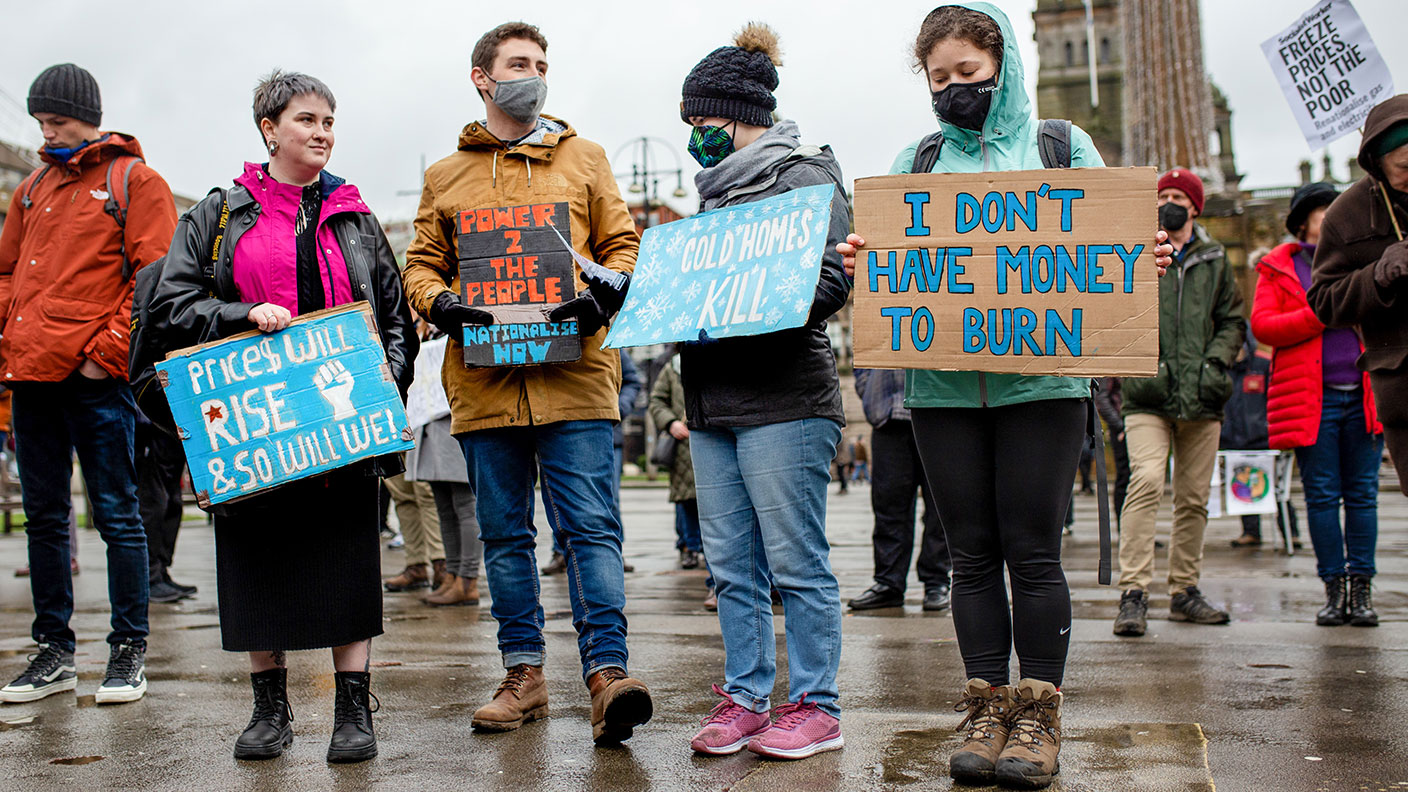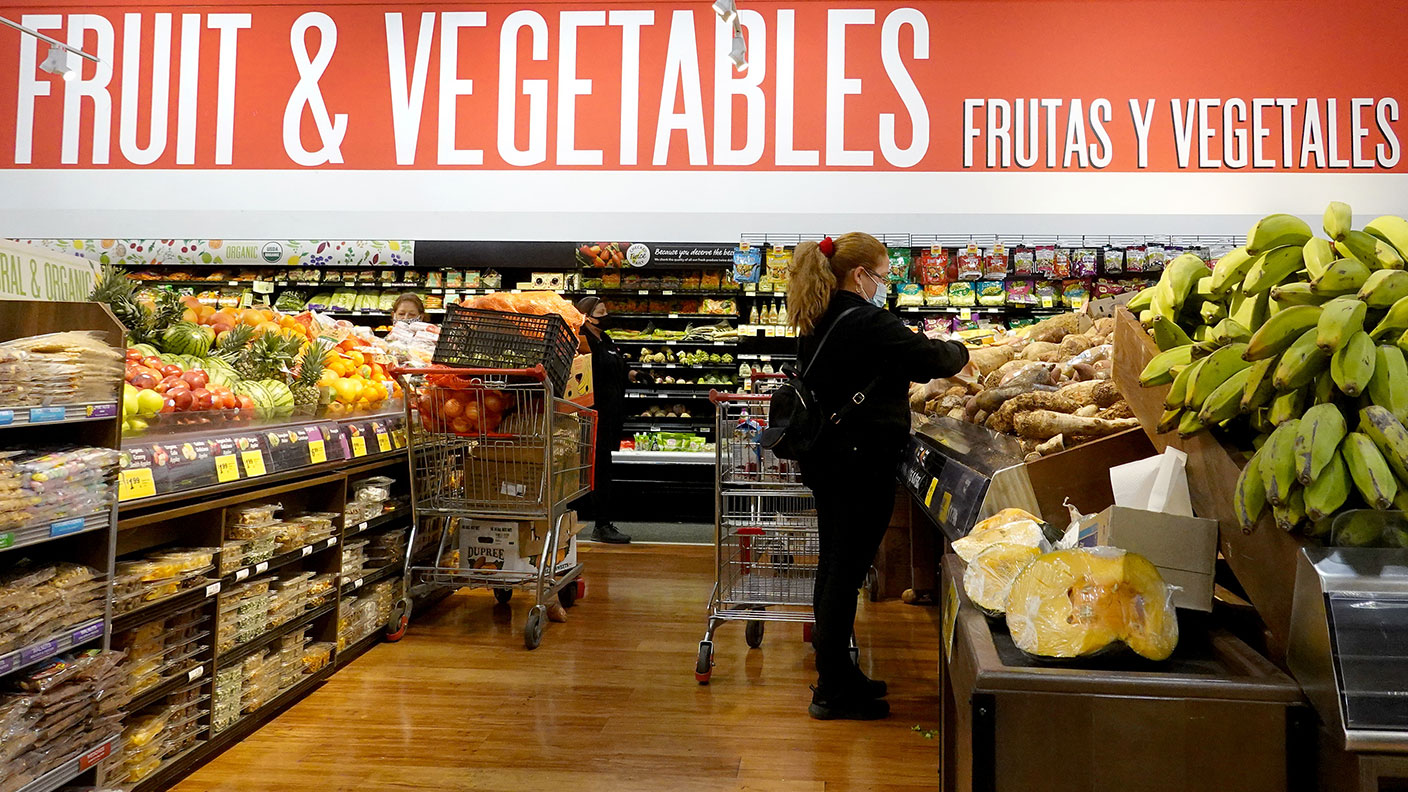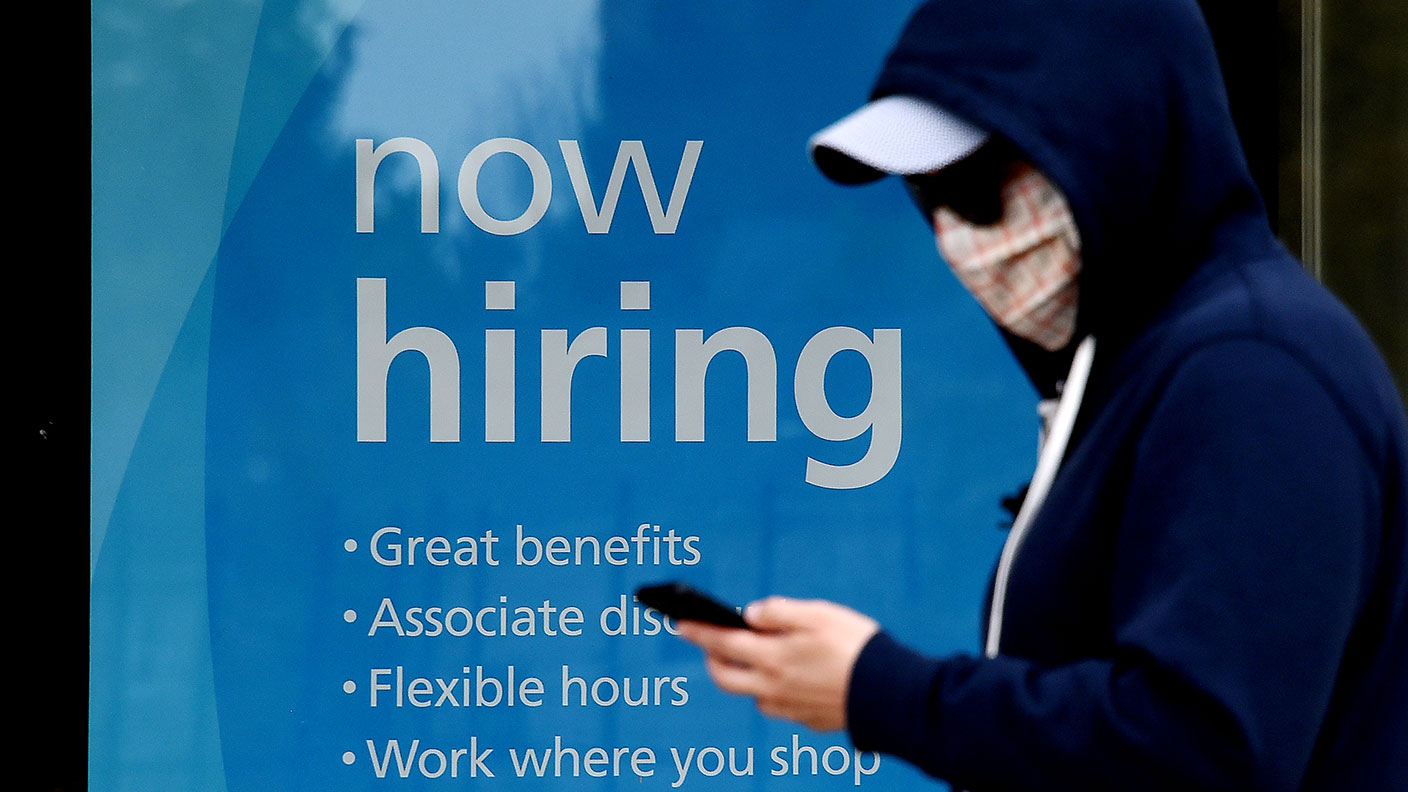Free broadband? Wait until this election campaign really gets going
Labour has added a chunk of BT to the list of things it will renationalise if it wins the election. That probably won’t happen, says John Stepek. But you need a plan B, just in case.

Get the latest financial news, insights and expert analysis from our award-winning MoneyWeek team, to help you understand what really matters when it comes to your finances.
You are now subscribed
Your newsletter sign-up was successful
Want to add more newsletters?

Twice daily
MoneyWeek
Get the latest financial news, insights and expert analysis from our award-winning MoneyWeek team, to help you understand what really matters when it comes to your finances.

Four times a week
Look After My Bills
Sign up to our free money-saving newsletter, filled with the latest news and expert advice to help you find the best tips and deals for managing your bills. Start saving today!

Britain is enduring a much-needed election. You might have noticed.
Since the financial crisis, we've got used to elections being all about sackcloth and ashes.
Austerity. Cuts. Taking away your house to pay for your elderly care.
MoneyWeek
Subscribe to MoneyWeek today and get your first six magazine issues absolutely FREE

Sign up to Money Morning
Don't miss the latest investment and personal finances news, market analysis, plus money-saving tips with our free twice-daily newsletter
Don't miss the latest investment and personal finances news, market analysis, plus money-saving tips with our free twice-daily newsletter
All policies that might be poorly implemented or ill thought through in the first place, but which do involve some nod to the notion that we can't just stick it all on the credit card forever.
Problem is, voters don't like that. And eventually, politicians particularly the more flamboyant sort cannot help themselves but play to the crowd.
That's why this election is all about the spending. Which brings us to the latest wheeze "free" broadband for all!
Have some free stuff all paid for by taxpayers
This morning, the Labour Party added a chunk of BT to the list of things it plans to renationalise if and when it gets into power.
We're already looking at renationalised water utilities, railways, National Grid and Royal Mail. Now we're looking at BT Openreach the broadband network too. The goal would be to give everyone in the UK free full-fibre broadband by 2030.
The potential cost of the nationalisation is debated, as it always is. The people who plan to take control of the asset the Labour Party say it will cost less than it probably will.
They've got the cost of the roll-out at more than £20bn, while the cost of the part-nationalisation would be set by Parliament, and paid for with government bonds.
The people who own the asset BT shareholders (or at least their representatives, in the form of the management) say it will cost more than it probably will. At the moment, figures of close to £100bn are being bandied about.
Meanwhile, the cost of maintaining the network will be funded by a new tax on the current public enemy number one, the tech multinationals.
I'm not sure what form this tax will take, given that we're currently struggling to tax them properly and it's an issue that lots of clever people have been looking at. But let's not worry about the details right now.
So what's the upshot of all this? The upshot is you get a load of brief headlines about "free broadband", as though the minute a Labour government gets into power, your Wi-Fi will suddenly be a lot better and also free of charge.
And being cynical about it as you should be that's the point.
Look, I'm entirely open to talking about the best way to own and run aspects of the economy. The "private vs public" ownership debate is frequently couched in overly simplistic terms, with one being bad and one being good depending on which side of the political fence you're on.
But this isn't being driven by finding the best solution to a tricky set of problems. It's being driven by ideology and the ability to promise "free" stuff ahead of an election. That's it.
As the FT notes, "Mr McDonnell said that this latest nationalisation was the limit of our ambitions'". However, as the paper also adds, that's exactly what he said in July after Labour talked about nationalising the water companies. To wit: "This is the limit of our ambition when it comes to nationalisation."
It'll be interesting to see just what else we're told we can get for "free" in the next few weeks.
Make sure you have a Plan B
From an investor's point of view, the main question here is: how likely is this to happen?
At the moment, according to the polls, the answer to that is "not very". That's presumably why BT's share price has recovered relatively quickly from an early panic-spike lower.
Of course, as we all know, polls may not reflect what happens on the night. So what can you do about it?
Realistically, anyone holding BT at the moment has to be aware that it's not exactly a company without its troubles.
So if you were still happy enough hanging on through the stock (and I'll warn you that I haven't done enough research into BT itself to give you a high-conviction view on it as yet), then I'm not sure this added threat should make a lot of difference to your investment case.
As for the wider risk of a Labour government all that this BT plan demonstrates is that the current manifesto is just the tip of the iceberg.
A few investment banks persuaded themselves a month or so ago, that a Corbyn government would be less of a risk than a "no deal" Brexit. Their idea was that Corbyn's bark would be worse than his bite. That when in power, the courts or reality or coalition partners would act as restraints on his ambitions to roll back capitalism.
Even if we put aside the fact that "no deal" Brexit appears to be pretty much off the table now, that now surely seems terribly naive.
I suspect that we won't get a Corbyn government next month. However, if we do, investors need to understand that they cannot take their property rights for granted. And that means having some sort of plan right now for your most vulnerable assets.
We've looked at this several times in MoneyWeek magazine over the last few months. If you're not already a subscriber you can get your first 12 issues for £12 here.
Also don't miss our all-day Wealth Summit. It's next Friday. If you haven't booked your ticket yet, hurry the last few are going fast!
Get the latest financial news, insights and expert analysis from our award-winning MoneyWeek team, to help you understand what really matters when it comes to your finances.

-
 How a ‘great view’ from your home can boost its value by 35%
How a ‘great view’ from your home can boost its value by 35%A house that comes with a picturesque backdrop could add tens of thousands of pounds to its asking price – but how does each region compare?
-
 What is a care fees annuity and how much does it cost?
What is a care fees annuity and how much does it cost?How we will be cared for in our later years – and how much we are willing to pay for it – are conversations best had as early as possible. One option to cover the cost is a care fees annuity. We look at the pros and cons.
-
 Is the US in recession and does it matter?
Is the US in recession and does it matter?Analysis There's a heated debate over whether the US is in recession or not. But why does it matter? John Stepek explains
-
 Has the chancellor done enough to save the UK from recession?
Has the chancellor done enough to save the UK from recession?Analysis UK Chancellor Rishi Sunak announced a new package last week to ease the cost of living crisis. John Stepek explains whether the risk of a UK recession still remains.
-
 Is the UK too open to overseas takeovers?
Is the UK too open to overseas takeovers?Analysis Data shows that the UK is more open to overseas takeovers than other major markets. John Stepek asks: should investors care?
-
 How to manage your money as inflation just keeps rising
How to manage your money as inflation just keeps risingAnalysis Uk inflation is at a 30-year high – and it won't be falling any time soon. So what can you do? John Stepek explains how to manage your money to combat rising prices.
-
 Inflation is going to stay even higher for even longer
Inflation is going to stay even higher for even longerAnalysis Commodity prices – everything from energy to food – are going through the roof. And that’s not likely to end any time soon, says John Stepek. Here's what that means for how you invest.
-
 Inflation is incredibly inconvenient, as we’re all about to learn
Inflation is incredibly inconvenient, as we’re all about to learnAnalysis Inflation doesn't just eat into your wealth, it eats into your time – and can be devastating for those on the lowest incomes. And it's not going away any time soon, says John Stepek. Here's how to invest.
-
 The cost of living crisis is global – US inflation just hit another 40-year high
The cost of living crisis is global – US inflation just hit another 40-year highAnalysis With US inflation running at 7.5%, it’s clear that the cost of living crisis is not confined to the UK. John Stepek looks at the likely reaction from governments and central banks, and what it means for you.
-
 The strong US jobs report is good news for the economy, but not so much for markets
The strong US jobs report is good news for the economy, but not so much for marketsAnalysis January's US jobs report came in much stronger than anyone was expecting, with 467,000 new jobs added to the economy. But things might not be quite as rosy as they seem, says John Stepek. Here's why.